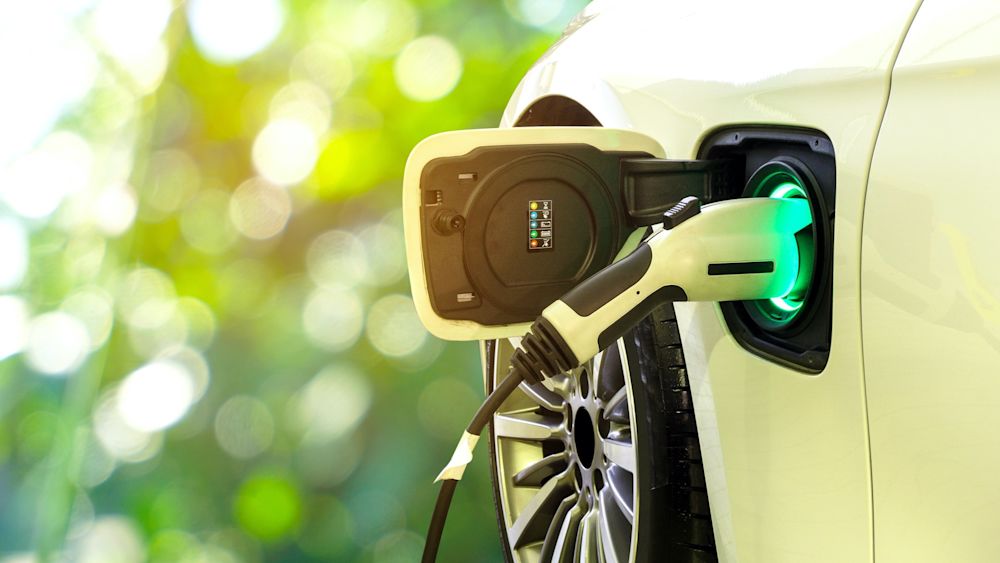- Iterate
- Meet The Team
- The EV Startups Chasing Down Tesla in 2022
Table of contents
While Tesla seems to get all the press, it isn't alone in creating innovative electric car solutions as a host of startups are also flooding the segment in an attempt to bring clean energy to the auto market.

Rivian
Founded in 2009, Rivian made a name for itself, promising a lineup of electric trucks like no other. Since then, the company has expanded its operation to make electric vans, which has caught the attention of Amazon. The e-commerce titan ordered 100,000 electric vans from Rivian in September 2019 and led an investment round worth $700 million in December 2019. Rivian has continued its streak of successes, announcing that it had raised another $2.5 billion in funding in 2020.
Rivian kicked off 2022 by announcing that it had produced 1,015 EVs, primarily its electric pickup truck, since September 2021. While the number fell short of the 1,200 vehicles the company expected to make. Rivian is new to vehicle production and is in a similar boat as Tesla in its early days, which experienced production woes of its own. The EV maker will likely hone its processes and improve its output as it ramps up manufacturing in 2022.
Lucid Motors
Lucid Motors was founded in 2007 and began construction on a manufacturing facility in December 2019 to build its Lucid Air electric sedan.
In early July 2020, the company revealed its plan to sell and service its vehicles through a network of 20 of its own "studio" locations spread throughout North America. These initial storefront and service locations launched in 2021, and the company has more planned for 2022. Lucid is currently in talks with Saudi Arabia's government to expand its manufacturing capacity with a new facility built in the kingdom by 2025 or 2026.
Nikola
With its fully-electric and hydrogen fuel cell semi-trucks, Nikola is working to bring the clean fuel revolution to the heavy-duty applications and trucking industry. The company was founded in 2014, and in March 2020, it announced it would merge with VectoIQ Acquisition Corporation, which resulted in the combined company being listed on the NASDAQ exchange. However, later in the year, the company was rocked by a fraud investigation from regulators that forced its founder, Trevor Milton, to step down as its Executive Chairman. The investigation's fallout also led GM to scale back a deal with Nikola and forced the EV maker to ditch plans to produce an electric pickup truck. Nevertheless, Nikola ended 2021 by delivering its first fully-electric semi-truck and is expected to ramp up production in 2022 as it competes against Tesla's all-electric semi-truck, which is slated to launch in 2022 after several delays.
Fisker Inc.
Henrik Fisker's first electric car attempt was Fisker Automotive, which was founded in 2007. Unfortunately, the company ran into financial trouble in 2012, which caused it to cease production and declare bankruptcy in 2013. The company's assets were later sold to the Wanxiang Group in 2014, which launched a new company called Karma Automotive.
Fisker, rebooted his namesake car company as Fisker Inc in 2016. The company went public in October 2020 thanks to a $2.9 billion merger with Spartan Energy Acquisition Corp, which is backed by Apollo Global Management. The electric car maker is on schedule to launch its Fisker Ocean SUV in 2022.
Karma Automotive
Karma Automotive was created from the ashes of Fisker Automotive in 2014 by the Wanxiang Group, and just this month raised $100 million to continue its electric vehicle efforts. As of 2019, Karma Automotive has already delivered over 500 units of its inaugural Revero electric sports sedan, which retails starting at around $140,000. The company is also looking to launch a high-horsepower GTE version, as well as an even more expensive supercar and a lower price point sedan, called the GS-6.
Create your own free org chart today!
Show off your great team with a public org chart. Build a culture of recognition, get more exposure, attract new customers, and highlight existing talent to attract more great talent. Click here to get started for free today.
In this article


The ORG helps
you hire great
candidates
Free to use – try today